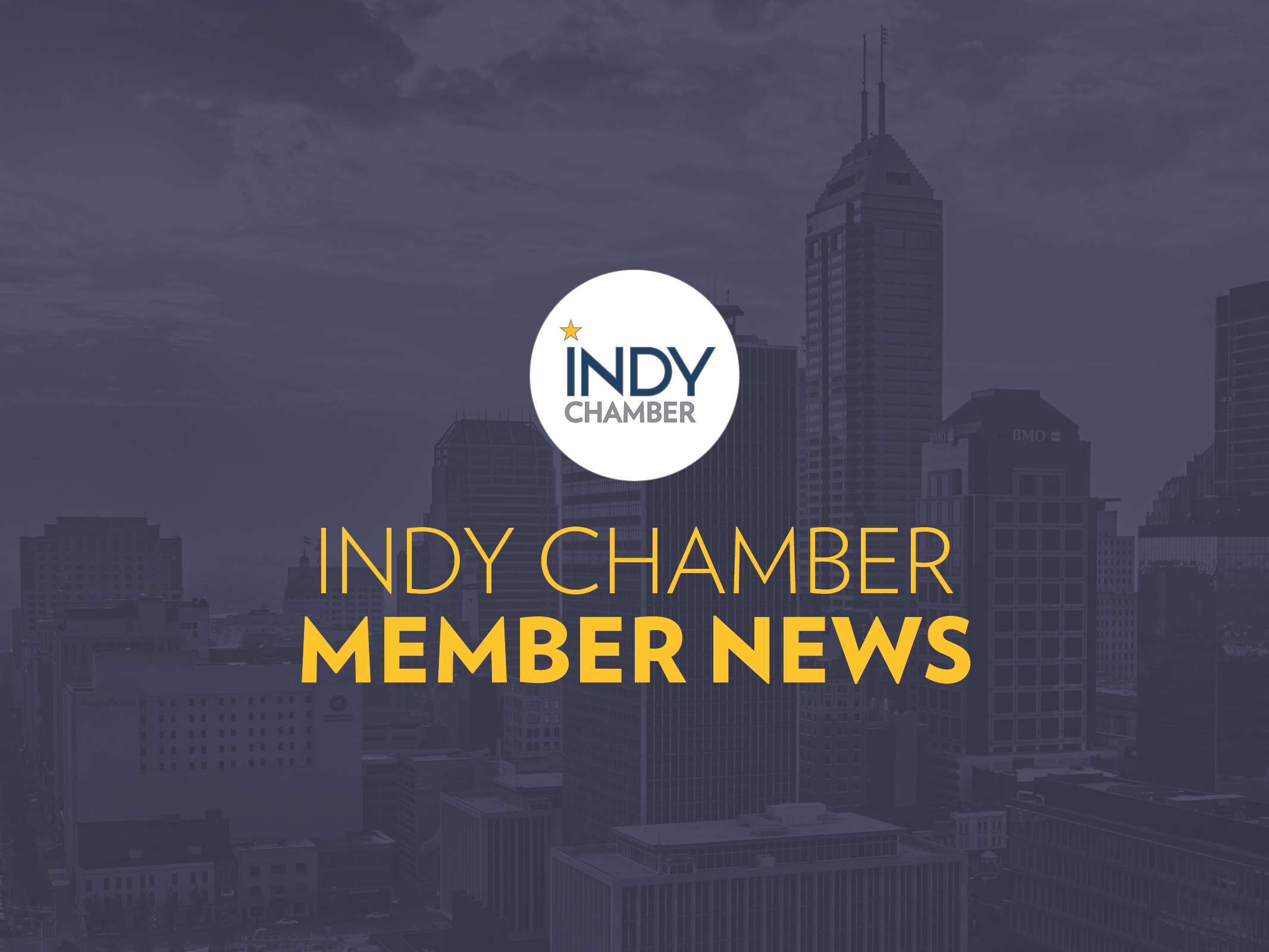Legislative Update: And The Award Goes To…

The filmmakers behind the 2004 blockbuster “The Day After Tomorrow” depicted a sudden ice age and resulting calamitous shenanigans. The abrupt arrival of sub-zero temperatures in central Indiana this week had some Hoosiers wondering if the film’s producers might have been onto something.
The one place in Indianapolis that wasn’t cold this week: inside the Indiana Statehouse, where Session is already in high gear. No disrespect to any of Monday night’s Emmy Award winners, but some of the most interesting storylines this week were on the Indiana General Assembly livestream. Warning—spoilers ahead! Read on for a recap of this week’s must-see (legislative) TV.
No finer place.
If we had to choose a theme song for Wednesday’s six-hour House Ways and Means Committee Hearing—four hours of which was devoted to taking testimony on HB 1199—we’d be inclined to go with Petula Clark’s 1964 smash hit “Downtown.” The tremendous display of unity and robust support for the Mile Square Economic Enhancement District (EED) from Indy Chamber members, downtown residents, and civic partners during the hearing was a perfect illustration of what makes our downtown such a fine place.
A handful of people spoke in support of HB 1199, which seeks to repeal the authorizing legislation for the Downtown Indianapolis EED, but they were outnumbered roughly six to one by speakers who opposed the bill and support the EED. Those speakers included large corporate entities, small business owners, apartment owners, faith leaders, civic partners, and downtown residents—all of whom waited hours for their opportunity to speak to the committee about their support for the effort to enhance public safety, homelessness response, and cleaning services in the Mile Square. In addition, more than 200 entities signed a letter from Indy Chamber and Downtown Indy urging legislators to leave the EED legislation in place.
Those seeking to repeal the EED legislation were critical of what they described as a lack of transparency and a rushed process in approving the EED. In reality, there was a year-long effort by the Indy Chamber and Downtown Indy to engage stakeholders on the subject, which has been widely reported in the media. Multiple public meetings were also held by the Indianapolis City-County Council—those calling for a repeal at the Statehouse chose not to engage in either process.
Creation of a dedicated revenue stream to support efforts to address public safety, cleanliness, and the needs of unhoused individuals in downtown Indianapolis has long been a priority for Indy Chamber members—and not just those located within the Mile Square. In the same way that the Indy Region is a primary driver of economic development for Indiana, the Mile Square is a primary driver of economic growth for Marion County and the nine- county Indy Region. The Indy Chamber team is deeply grateful to all those who helped us convey that message to legislators this week.
To the committee’s great credit, they stayed until nearly 7:00 p.m. to give everyone who showed up to speak on HB 1199 a chance to be heard. The committee will decide next week whether HB 1199 will be brought up for a vote—meaning there’s still time for Indy Chamber members to reach out to state legislators to express opposition to HB 1199.
Bus stop?
In 1966, British rock band The Hollies hit the airwaves with “Bus Stop,” about two young people who fall in love while waiting at (you guessed it) a bus stop.
SB 52, which would prohibit public transportation projects from using dedicated street lanes for buses only strikes a much less romantic chord. Droves of IndyGo supporters signed up to testify against the bill, compared with relatively few who signed up to testify in support—several of which were businesses concerned with the potential for operations disruption due to construction. More on that in a moment.
Among those appearing before the committee was Jennifer Pyrz, interim CEO of IndyGo, who told legislators Sen. Aaron Freeman’s bill would effectively kill the Blue Line by causing the project to forfeit $150 million in federal funding. Indy residents also told committee members that SB 52 undercuts the local community’s 2016 vote to bring Bus Rapid Transit (BRT) to Indianapolis. Nevertheless, the committee advanced SB 52 on a 7-5 vote.
Improved public transit is critical to the city’s long-term economic growth and is one of the quality-of-life factors key to attracting major employers to the region. In addition, IndyGo has made a point of improving infrastructure—including sidewalks, ramps, drainage, and more—along BRT routes, to say nothing of the estimated $1 billion of economic development IndyGo’s Red, Purple, and Blue lines have already attracted to the area.
The Indy Chamber has been among the foremost proponents of IndyGo’s BRT expansion project, including the Blue Line, which will provide a critical connection along Washington Street through the heart of Marion County and complete the BRT buildout, as adopted by Marion County residents in 2016.
The Indy Chamber has also hosted the Business Ownership Initiative (BOI) for more than 10 years, providing loans to small businesses, including those that struggle with access to traditional sources of capital. Loans provided by BOI are already available to Indy area businesses today — serving businesses disrupted by Blue Line construction is simply the application of an existing tool to a new circumstance.
If your business, or a business you know, needs capital to navigate disruption or support expansion, please contact [email protected].
We look forward to continuing to serve small businesses across the region and to working closely with our partners to specifically support those impacted by this important project.
Teach your children well.
In 1970, Crosby, Stills, Nash & Young scored a major hit with “Teach Your Children.” Were any legislators humming this earworm to themselves as they advanced HB 1001 this week? We can’t know for sure, but we are certain—and thankful—that Hoosier lawmakers are serious about supporting a variety of work-based learning opportunities for Indiana high school students.
As we noted last week, expanding and strengthening work-based learning options is an ongoing priority for Indy Chamber members. As drafted, HB 1001 proposes allowing recipients of a higher education award, freedom of choice grant, or 21st Century Scholarship to apply them to the cost of training by an approved intermediary, employer, or labor organization. While we continue to have reservations about the funding mechanism outlined in HB 1001, which would take funds traditionally dedicated to higher education and make them usable for non-degree training programs, we applaud legislators for engaging in a discussion vital to the future of Indiana’s workforce.
We’re hopeful more lawmakers will consider options that recognize college and work-based learning as compatible, complementary, and permeable paths as the conversation continues.
We would also call on them to address other barriers to the expansion of Modern Youth Apprenticeship and work-based learning by clarifying employer liability to allow high school students to engage in work-based learning across industries, ensure graduation credit for those experiences, and explicitly include employers in curriculum development and performance evaluation to ensure that classroom content and in-demand skills are aligned.
You're [providing quality child care to] my baby.
We’ve taken a little poetic license with Paul Anka’s hit “You’re having my baby.” But SB 2 is a critical way for the state to show some love to Indiana’s working parents. Chairman Ed Charbonneau’s bill makes some important tactical moves to improve affordability and access by calling for the creation of a dashboard on childcare subsidies available to Indiana residents, growing the childcare workforce challenge by allowing supervised teenagers to provide childcare for school-aged children and allowing people 18 and older with specified qualifications to be the lead provider in infant and toddler daycare rooms.
A lack of accessible, affordable, quality childcare limits parents’ participation in Indiana’s workforce. The Indy Chamber supports SB 2 as a timely approach to filling this gap; we were glad to see the bill advance this week and will continue to monitor SB 2’s progress this session.

Join Our Newsletter
Quick Connect Links



